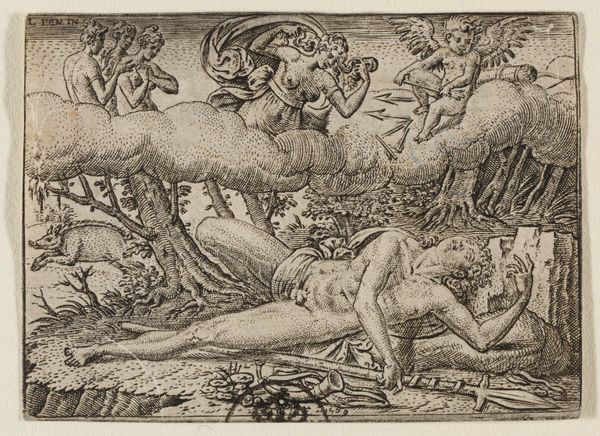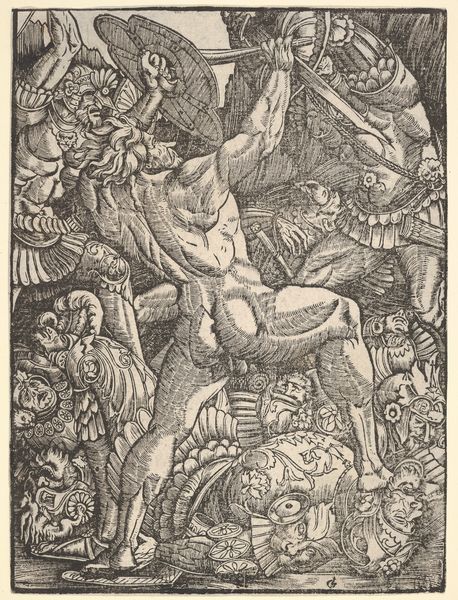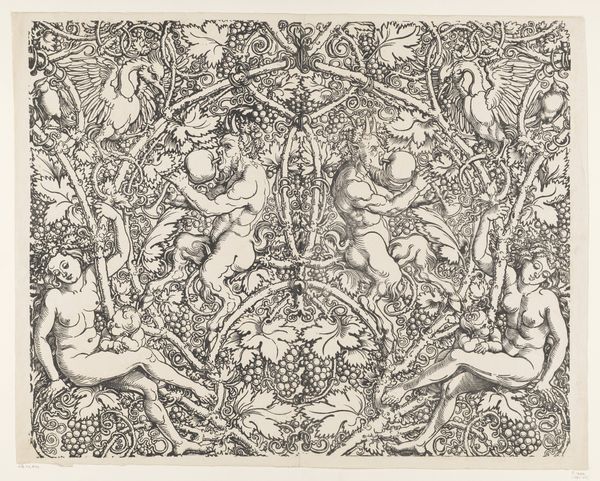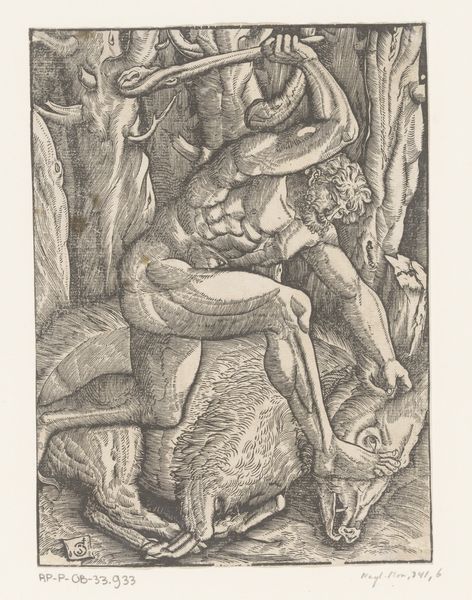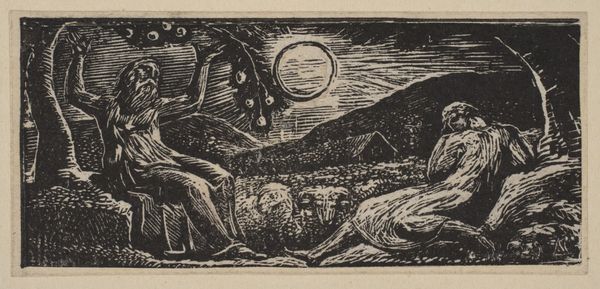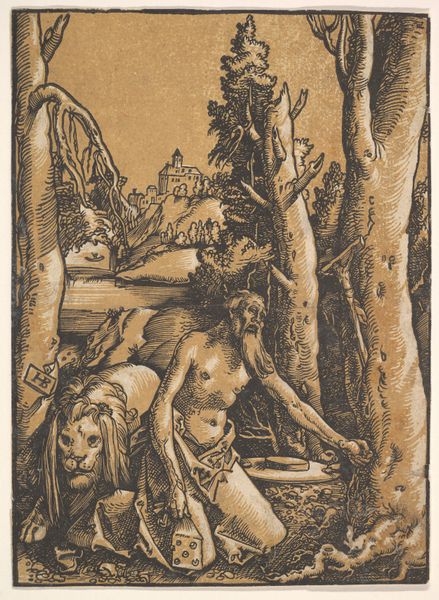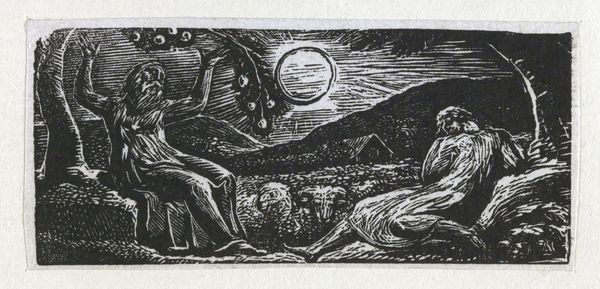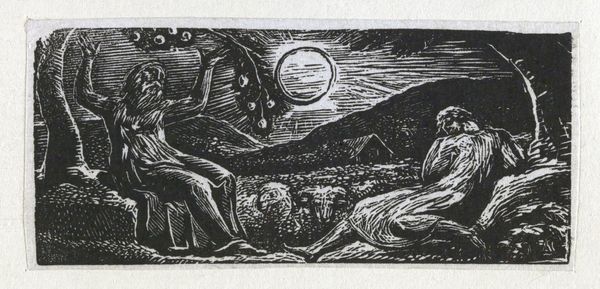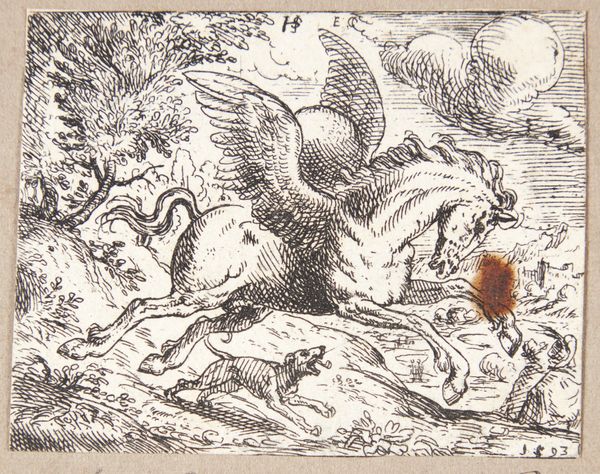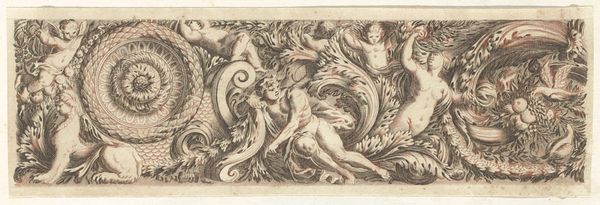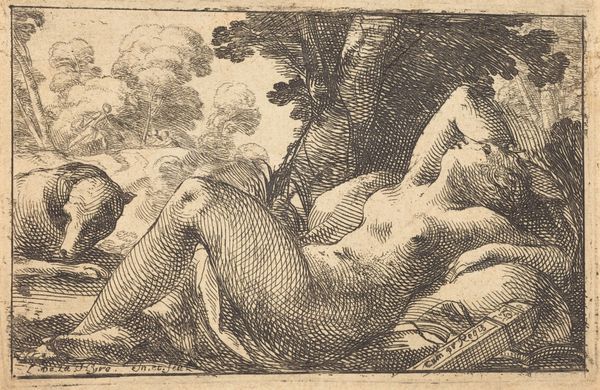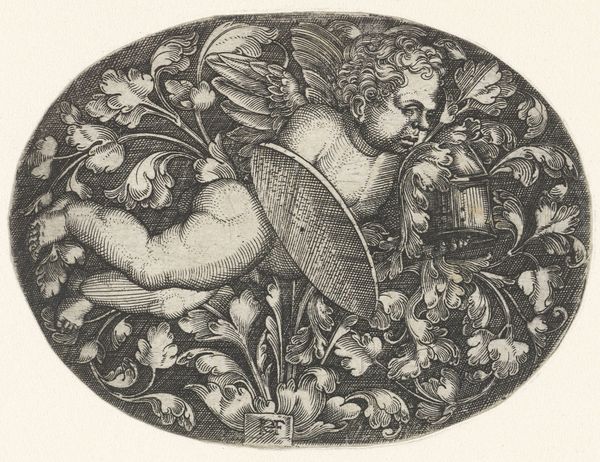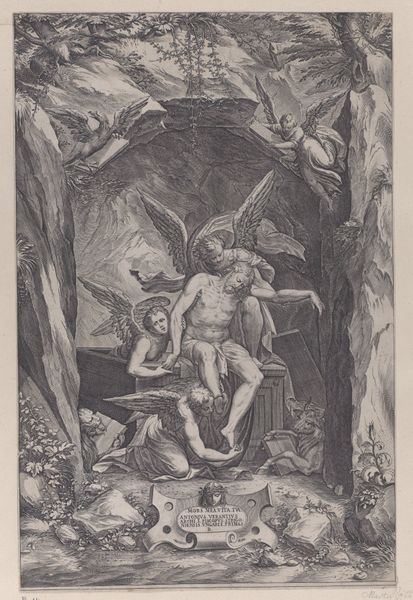
print, etching
#
allegory
# print
#
etching
#
landscape
#
figuration
#
11_renaissance
#
history-painting
#
italian-renaissance
#
nude
Dimensions: 55 mm (height) x 73 mm (width) (bladmål)
Hans Strohmayer created this tiny print, Leda and the Swan, sometime between 1580 and 1594. It’s made with the etching process, using acid to bite lines into a metal plate, which is then inked and printed onto paper. The magic of etching lies in its capacity to create intricate detail with a relatively simple method. Strohmayer would have coated his plate with a waxy ground, drawn the image with a needle, and then immersed it in acid. The longer the acid bath, the deeper the lines, allowing for variation in the printed image. This was a revolutionary development, empowering artists to produce multiples of their work. Prints like these democratized art. They were relatively inexpensive, and circulated widely, carrying artistic ideas across Europe. Look closely at the landscape details, and the careful rendering of Leda's form. All this was made possible by a clever combination of craft, chemistry, and commerce. It’s a powerful reminder that even small things can have a big impact on the world.
Comments
No comments
Be the first to comment and join the conversation on the ultimate creative platform.
